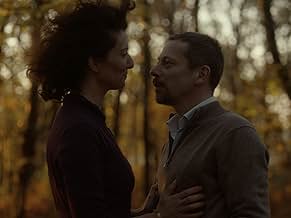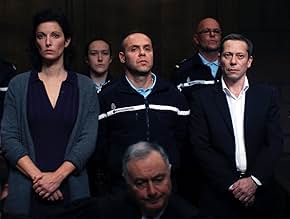Mathieu Amalric isn't one to shy away from a risky project—has anybody seen the film where he plays a shrink and Benicio Del Toro's a Blackfoot WWII vet with PTSD? Here he and his real-life partner, Stéphanie Cléau, co-star in a stripped-down 75' adaptation of a Simenon story of erotic obsession and justice gone awry. The fine performances and the film's time-shuffling structure help maintain a high level of suspense at least past the halfway mark, though it seems to me that Amalric and Cléau, who also wrote the script, might have thrown a little too much of Simenon's backstory out with the bathwater.
The plodding inquiry that begins even before we know a crime has been committed certainly explains Julien's (MA's character's) air of glum fatalism through the second half of the film, but the script's intense focus on the two lovers doesn't prepare us for the final courtroom scene, in which a character we've barely seen before steps into the spotlight. (I'm planning to watch again to test the hypothesis, suggested by some online reviewers, that the crime the protags are charged with was committed by someone else
)
The courtroom scene has a nightmarish quality, like one of Hitchcock's "wrong man" films; the trial itself seems like an open-mic session where gossipy townsfolk step up to air their gripes about the defendants—one witness dismisses Julien's stylish modernist house as a "crappy little shack." There's certainly a disconnect between Simenon's view of blind, blundering justice and our own no doubt idealized police procedurals and courtroom dramas; I agree with other reviewers that Julien would have excellent grounds for appeal on the basis of blatant judicial bias and ineffective counsel.


























